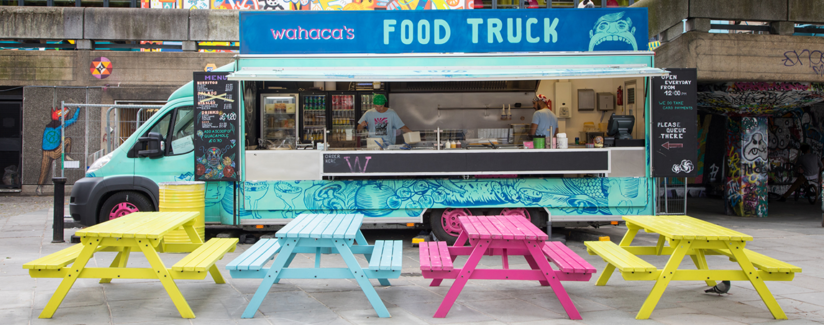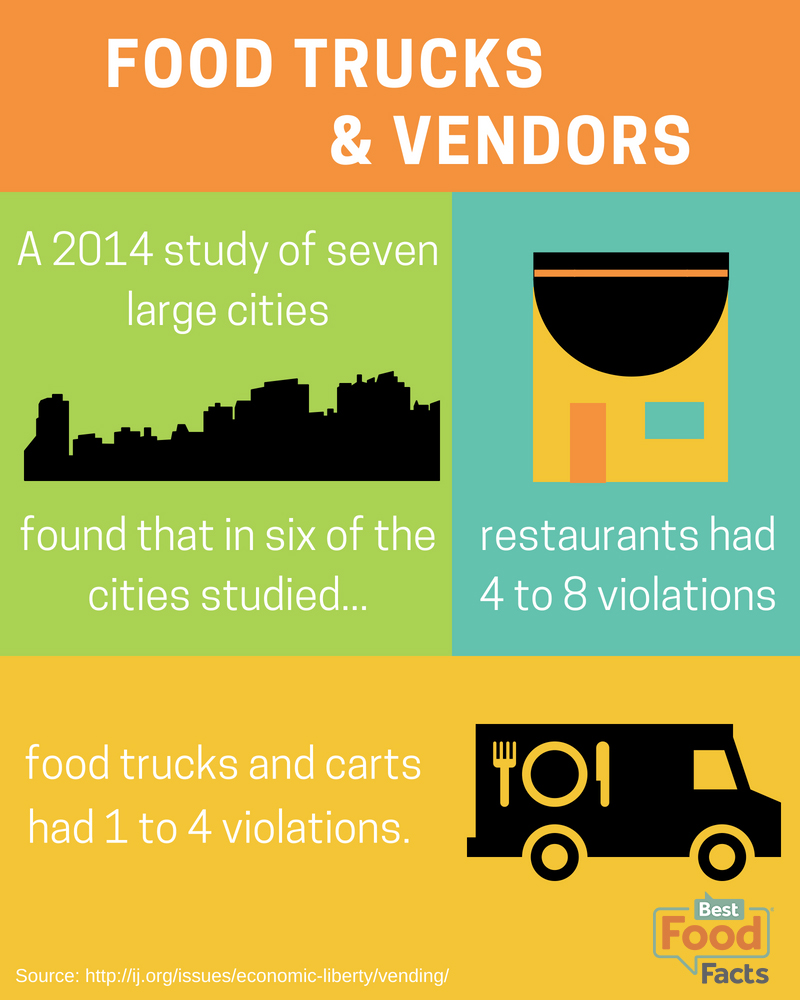
Is It Safe to Eat From Food Trucks?
Food trucks and outdoor vendors at fairs and festivals allow us to enjoy our favorite foods without taking away from the moments around us. How adventurous is too adventurous when it comes to eating at food trucks and outdoor vendors? We caught up with Dr. Julie Garden-Robinson, PhD, RD to get the dish on food safety.
Are food trucks and food vendors inspected?
Dr. Garden-Robinson: “Yes, food trucks are inspected in a similar manner to restaurants. A food truck business must obtain all the licenses, permits and/or certificates required by their local jurisdiction before they can open their ‘window’ and begin selling food. The licenses include business and vehicle licenses, and the permits often include food handler permits. The specific details of the requirements vary depending on location.”
How can I tell that a food truck or food vendor was inspected?
Dr. Garden-Robinson: “You can ask the proprietor questions about their inspections or ask to see the recent inspection report. In many locations, you can look up the information for the establishment online. Many health departments across the country post restaurant inspection reports as a public record. Therefore, food safety savvy consumers can learn about food safety violations associated with the place of business and make their own informed decisions on where to eat.”
How are food safety protocols different for food trucks and outdoor vendors compared to a restaurant?
Dr. Garden-Robinson: “Food truck operators need to have access to similar equipment to restaurant operators, such as refrigeration and hot-holding units, but the available space is considerably smaller in these kitchens on wheels. As a result of the limited space, one person may be preparing and serving food and also collecting money, which could promote cross-contamination. Having access to safe water is critical to food trucks, because of the need to wash hands, fresh fruits and vegetables (if they are served), and to wash and sanitize surfaces and utensils. The vendors also need to safely dispose of wastewater from cleaning, sanitizing and food preparation. In addition, the vendor may need to make arrangements for use of restrooms within a certain perimeter of their food truck for foodservice workers to use.”
What are some key things I should look for when deciding whether a food truck or food vendor is safe to eat at?
Dr. Garden-Robinson: “Consumers should be observant and serve as ‘unofficial food inspectors.’ As a customer, you should look for overall cleanliness and observe food handling practices and be aware of food temperatures. Consumers can ask themselves some questions as they observe the food handling practices:
- Are the food handlers making change wearing the same gloves they wore when they made your sandwiches or other menu items? If so, that practice could cause cross-contamination.
- Are the food handlers regularly washing their hands?
- Is hot food served steaming hot and cold food served cold? Do they know the temperature of the food they are serving you? Temperature issues can be a major concern in mobile food businesses that often serve food during the heat of summer.
- Are the food handlers using food thermometers to measure food temperatures?”
What steps can I take to protect myself from foodborne illnesses when eating at a food truck or outdoor vendor?
Dr. Garden-Robinson: “Even if you obtained safe food from the vendor, the food you purchased is now under your control. You need to take some steps to ensure that the food remains safe. Be sure to wash your hands before you eat any ‘finger food’ you purchased, or, in a pinch, use hand sanitizer to clean your hands. On hot days (above 90° F), the U.S. Department of Agriculture recommends that you consume perishable food within an hour or place it in a cooler with ice or refrigerate. If you can’t eat the full portion within a short time and have no way to refrigerate it, then share your food with a friend to avoid wasting food.”
Is it generally safe to eat at food trucks and outdoor vendors?
Dr. Garden-Robinson: “Obtaining food at an outdoor venue from food trucks is fun and popular. If vendors are following safe food handling rules, are regularly inspected and quickly correct any issues, then we can expect food obtained from food trucks to be safe.
Ongoing safety at any type of foodservice facility requires vigilance. To ensure safety, food trucks and other foodservice operations should consider conducting ongoing self-inspections and not rely on periodic formal inspections. As with any foodservice business, food truck operators also need to provide ongoing training to employees, be sure their water supply is safe and readily available, and make sure all refrigeration and heating units are working correctly, among many other considerations. Consumers also need to be observant of the food handling practices they see — and ask questions.”
Food trucks and outdoor vendors at fairs and festivals are inspected and required to follow food safety protocols. Consumers should act as their own food inspectors and ask questions when deciding whether a food truck or outdoor vendor is safe to eat at.



























